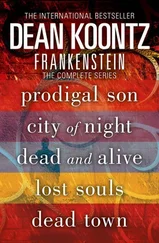Celestina extended her left hand, which shook so badly that she nearly knocked over both their wineglasses. “I will."
Neither of them was aware that their personal drama, in all its clumsiness and glory, had focused the attention of everyone in the restaurant. The cheer that went up at Celestina's acceptance of his proposal caused her to start, knocking the ring from Wally's hand as he attempted to slip it on her finger. The ring bounced across the table, they both grabbed for it, Wally made the catch, and this time she was properly betrothed, to wild applause and laughter.
Dessert was on the house. The waiter brought the four best items on the menu, to spare them the need to make two small decisions after having made such a big one.
After coffee had been served, when Celestina and Wally were no longer the center of attention, he indicated the array of desserts with his fork, smiled, and said, “I just want you to know, Celie, that these are sweets enough until we're married."
She was astonished and moved. “I'm a hopeless throwback to the nineteenth century. How could you realize what's been on my mind?"
“It was in your heart, too, and anything that's in your heart is there for anyone to see. Will your father marry us?"
“Once he regains consciousness."
“We'll have a grand wedding."
“It doesn't have to be grand,” she said, with a seductive leer, “but if we're going to wait, then the wedding better be soon."
From Sparky, Tom Vanadium had borrowed a master key with which he could open the door to Cain's apartment, but he preferred not to employ it as long as he could enter by a back route. The less often he used the halls that were frequented by residents, the more likely he would be able to keep his flesh-and-blood presence a secret from Cain and sustain his ghostly reputation. If too many tenants got a look at his memorable face, he would become a topic of discussion among neighbors, and the wife killer might tumble to the truth.
He raised the window in the kitchen and climbed outside, onto the landing of the fire escape. Feeling like a high-roaming cousin to the Phantom of the Opera, bearing the requisite fearsome scars if not the unrequited love for a soprano, Vanadium descended through the foggy night, down two flights of the switchback iron stairs to the kitchen at Cain's apartment.
All windows opening onto the fire escape featured a laminated sandwich of glass and steel-wire mesh to prevent easy access by burglars. Tom Vanadium knew all the tricks of the best B-and-E artists, but he didn't need to break in order to enter here.
During the cleaning, installation of new carpet, and painting that had followed the removal of the diarrheic pig set loose by one of Cain's disgruntled girlfriends, the wife killer had spent a few nights in a hotel. Nolly took advantage of the opportunity to bring his associate James Hunnicolt—Jimmy Gadget-onto the premises to provide a customized, undetectable, exterior window-latch release.
As he'd been instructed, Vanadium felt along the return edge of the carved limestone casing to the right of the window until he located a quarter-inch-diameter steel pin that protruded an inch. The pin was grooved to facilitate a grip. An insistent, steady pull was required, but as promised, the thumb-turn latch on the inside disengaged.
He raised the lower sash of the tall double-hung window and slipped quietly into the dark kitchen. Because the window served also as an emergency exit, it wasn't set above a counter, and ingress was easy.
This room didn't face the street by which Cain would approach the building, so Vanadium switched on the lights. He spent fifteen minutes examining the mundane contents of the cupboards, searching for nothing in particular, merely getting an idea of how the suspect lived-and, admittedly, hoping for an item as helpful to a conviction as a severed head in the refrigerator or at least a plastic-wrapped kilo of marijuana in the freezer.
He found nothing especially gratifying, switched off the lights, and moved on to the living room. If Cain was coming home, he could glance up from the street and see lights ablaze here, so Vanadium resorted to a small flashlight, always carefully hooding the lens with one hand.
Nolly, Kathleen, and Sparky had prepared him for Industrial Woman, but when the flashlight beam flared off her fork-and-fan-blade face, Vanadium twitched in fright. Without fully realizing what he was doing, he crossed himself.
The white Buick glided through the tides of fog like a ghost ship plying a ghost sea.
Wally drove slowly, carefully, with all the responsibility that you would expect from an obstetrician, pediatrician, and spanking-new fiancé. The trip home to Pacific Heights took twice as long as it would have taken in clear weather on a night without a pledge of troth.
He wanted Celestina to sit in her seat and use her lap belt, but she insisted on cuddling next to him, as if she were a high-school girl and he were her teenage beau.
Although this was perhaps the happiest evening of Celestina's fife, it wasn't without a note of melancholy. She couldn't avoid thinking about Phimie.
Happiness could grow out of unspeakable tragedy with such vigor that it produced dazzling blooms and lush green bracts. This insight served, for Celestina, as a primary inspiration for her painting and as proof of the grace granted in this world that we might perceive and be sustained by the promise of an ultimate joy to come.
Out of Phimie's humiliation, terror, suffering, and death had come Angel, whom Celestina had first and briefly hated, but whom now she loved more than she loved Wally, more than she loved herself or even life itself. Phimie, through Angel, had brought Celestina both to Wally and to a fuller understanding of their father's meaning when he spoke of this momentous day, an understanding that brought power to her painting and so deeply touched the people who saw and bought her art.
Not one day in anyone's life, so her father taught, is an uneventful day, no day without profound meaning, no matter how dull and boring it might seem, no matter whether you are a seamstress or a queen, a shoeshine boy or a movie star, a renowned philosopher or a Downs syndrome child. Because in every day of your life, there are opportunities to perform little kindnesses for others, both by conscious acts of will and unconscious example. Each smallest act of kindness-even just words of hope when they are needed, the remembrance of a birthday, a compliment that engenders a smile-reverberates across great distances and spans of time, affecting lives unknown to the one whose generous spirit was the source of this good echo, because kindness is passed on and grows each time it's passed, until a simple courtesy becomes an act of selfless courage years later and far away. Likewise, each small meanness, each thoughtless expression of hatred, each envious and bitter act, regardless of how petty, can inspire others, and is therefore the seed that ultimately produces evil fruit, poisoning people whom you have never met and never will. All human lives are so profoundly and intricately entwined-those dead, those living, those generations yet to come-that the fate of all is the fate of each, and the hope of humanity rests in every heart and in every pair of hands. Therefore, after every failure, we are obliged to strive again for success, and when faced with the end of one thing, we must build something new and better in the ashes, just as from pain and grief, we must weave hope, for each of us is a thread critical to the strength-to the very survival-of the human tapestry. Every hour in every life contains such often-unrecognized potential to affect the world that the great days for which we, in our dissatisfaction, so often yearn are already with us; all great days and thrilling possibilities are combined always in this momentous day.
Читать дальше











